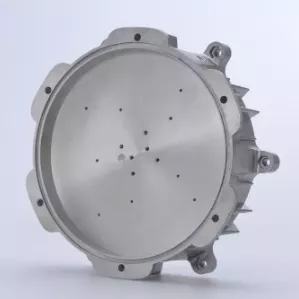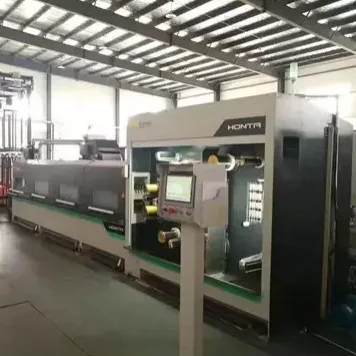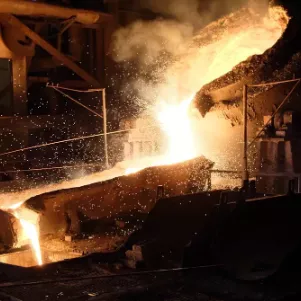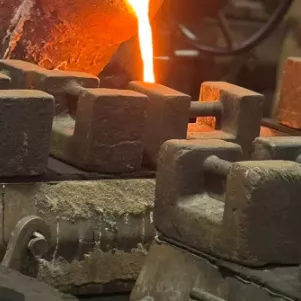What is Metal Forging? Understanding the Metal Forming Process
Metal forging is a manufacturing process where metal is shaped using localized compressive forces. It is one of the oldest metalworking processes, dating back to 4000 BCE, and remains one of the most reliable methods for creating high-strength metal components.
At JOC Machinery, we specialize in advanced metal forging techniques that transform raw metal into precision components for industries including construction, petroleum, agricultural machinery, and railway applications.
Unlike casting processes where metal is melted and poured into molds, forging shapes metal through deformation while maintaining its solid state. This critical difference results in superior grain structure, enhanced mechanical properties, and greater strength-to-weight ratios in the finished components.
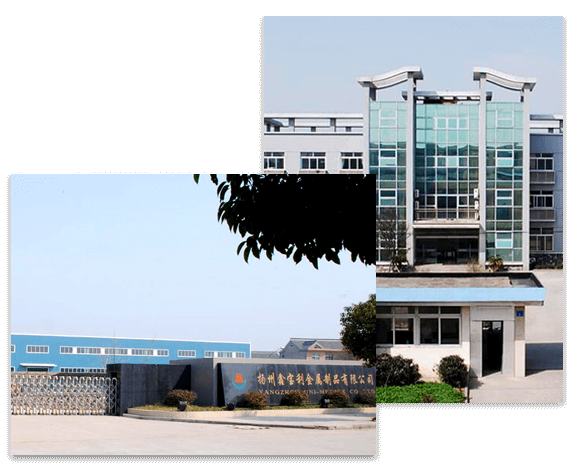
Types of Metal Forging Processes at JOC Machinery
JOC Machinery offers comprehensive metal forging capabilities through multiple specialized processes. Each forging method offers distinct advantages for different applications, materials, and production requirements. Our engineering team can help determine the optimal forging process for your specific project needs.

Open Die Forging: Versatile Shaping for Large Components
Open die forging, also known as free forging, involves shaping metal between multiple dies that don't completely enclose the workpiece. This process is ideal for:
• Large components
• Low to medium production volumes
• Custom shapes with minimal tooling costs
• Applications requiring excellent mechanical properties
JOC's open die forging capabilities include a range of hammer and press equipment capable of forging components from 5kg to 2000kg, with particular expertise in carbon steel, alloy steel, and stainless steel forging.
Closed Die Forging: Precision Shaping for Complex
Closed die forging (impression die forging) shapes metal within two or more dies that contain a pre-cut profile of the desired part. This process offers:
• Excellent dimensional accuracy and surface finish
• Complex geometries and near-net shapes
• Reduced material waste and machining requirements
• High production efficiency for volume manufacturing
Our Yangzhou facility specializes in closed die forging with state-of-the-art hydraulic and mechanical presses ranging from 300 to 2500 tons, producing precision components for construction machinery, petroleum equipment, and agricultural applications.


Hot Forging: Optimal for Large, Complex Components
Hot forging involves heating metal above its recrystallization temperature before deformation, typically between 1150°C and 1250°C for steel. Benefits include:
• Enhanced metal flow and formability
• Reduced force requirements
• Ability to create complex geometries
• Excellent for large, thick components
JOC's hot forging operations are equipped with precision-controlled heating furnaces and advanced thermal monitoring systems to ensure optimal material properties throughout the forging process.
Cold Forging: Superior Precision and Surface Finish
Cold forging shapes metal at or near room temperature, below its recrystallization point. This process provides:
• Exceptional dimensional accuracy and tolerance control
• Superior surface finish requiring minimal secondary operations
• Improved mechanical properties through work hardening
• Excellent for small to medium-sized precision components
Our cold forging capabilities are ideal for high-precision components in automotive, valve, and pump applications where dimensional stability and surface quality are critical requirements.


Metal Forging Materials & Technical Capabilities
| Material Type | Specifications | Applications |
| Carbon Steel | AISI 1018 - 1095 | Construction, general engineering |
| Alloy Steel | AISI 4130, 4140, 4340, 8620 | High - stress components, gears |
| Stainless Steel | 304, 316, 410, 420, 17 - 4PH | Corrosion - resistant applications |
| Tool Steel | H13, D2, A2, M2 | Tooling, wear - resistant components |
| Aluminum Alloys | 6061, 7075 | Lightweight structural components |
| Copper Alloys | Brass, Bronze | Electrical components, bearings |
| Nickel Alloys | Inconel, Monel | High - temperature applications |
Capabilities Specifications:
From prototype to high-volume production (10,000+ pieces)
In-process inspection, CMM verification, material testing, NDT
Custom Metal Forging Product Showcase
At JOC Machinery, we understand that metal forging isn't just a manufacturing process; it's the foundation of critical components that power industries worldwide. Our forged products represent more than just shaped metal; they embody the perfect combination of material integrity, precision engineering, and uncompromising quality. Experience our comprehensive forging capabilities as you explore our showcase, witnessing how raw metal transforms into exceptional, high-performance components. Your specifications, our expertise – together, we create forged solutions that exceed expectations and withstand the most demanding applications.
The Metal Forging Process: From Design to Delivery
At JOC Machinery, we've refined our metal forging process through 20+ years of manufacturing experience. Our comprehensive approach ensures quality, consistency, and efficiency from initial design through final inspection and delivery.
Consultation & Design
Begin your journey with a comprehensive consultation. Our engineering team analyzes your requirements, material specifications, and application demands. We provide design recommendations to optimize your component for the forging process, ensuring maximum strength and cost-effectiveness.
Material Selection
Next, choose the optimal material for your application. Select from carbon steel, alloy steel, stainless steel, or specialty metals based on your performance requirements. Our metallurgists help determine the ideal composition to achieve your mechanical property specifications.
Forging Method Selection
Now comes the critical decision. Based on your component design, production volume, and precision requirements, we'll recommend the optimal forging process - open die, closed die, hot forging, or cold forging. Our expertise ensures the most efficient and effective manufacturing approach.
Tooling Development
Our tooling specialists design and manufacture precision dies customized for your specific component. Advanced simulation software ensures optimal material flow, while our in-house tooling capabilities guarantee quality control throughout the development process.
Sample Production & Approval
Before full production, we create sample components for your evaluation and testing. This validation step confirms dimensional accuracy, material properties, and performance characteristics, allowing for any necessary adjustments before proceeding to volume production.
Production & Quality Control
With your approval, we begin full production using our advanced forging equipment. Every step is monitored through rigorous quality control protocols, including dimensional inspection, material testing, and non-destructive evaluation to ensure consistent quality.
Secondary Operations & Finishing
After forging, your components undergo any required secondary operations - precision machining, heat treatment, surface finishing, or assembly. Our integrated capabilities ensure quality control throughout all manufacturing stages for a complete, ready-to-use product.
Final Inspection & Delivery
Each completed component undergoes comprehensive final inspection before packaging and delivery. Complete documentation, including material certifications and inspection reports, accompanies your order, ensuring full traceability and compliance with your specifications.
Applications of Metal Forging Across Industries
JOC Machinery provides custom metal forging solutions for diverse industrial applications.
Our forged components deliver superior strength, durability, and reliability in the most demanding environments and critical applications.
Construction Machinery
Petroleum & Gas Equipment
Agricultural Machinery
Railway & Mining
Power Transmission
General Industrial
Advantages of Metal Forging
Metal forging offers significant advantages over alternative manufacturing methods such as casting, machining, or welding.
JOC Machinery's forging expertise ensures these benefits are maximized for each custom component we produce.
Superior Mechanical Properties
Forged components exhibit 26% higher tensile strength and up to 37% greater fatigue resistance compared to cast equivalents. The controlled deformation during forging creates aligned grain flow that significantly enhances structural integrity and load-bearing capacity.
Enhanced Reliability & Safety
The absence of porosity and internal defects makes forged parts the preferred choice for safety-critical applications. Forging's uniform grain structure eliminates weak points, ensuring consistent performance under stress and extending operational lifespan.
Cost-Effective Production
While initial tooling costs may be higher, forging offers significant long-term cost advantages through reduced material waste, decreased machining requirements, and extended service life. For medium to high-volume production, forging delivers superior total cost of ownership.
Versatility in Design & Materials
Modern forging techniques can produce complex geometries in a wide range of materials, from carbon steels to specialty alloys. JOC's advanced forging capabilities enable near-net-shape production, minimizing secondary operations while maximizing design flexibility.
Environmental Sustainability
Forging is an environmentally responsible manufacturing choice, producing minimal waste and requiring no harmful chemicals. The extended service life of forged components further reduces environmental impact through decreased replacement frequency.
Consistent Quality & Traceability
JOC's ISO-certified forging processes ensure batch-to-batch consistency and complete material traceability. Our comprehensive quality management system maintains rigorous documentation from raw material to finished component.
Quality Assurance in Metal Forging: Our Commitment to Excellence
At JOC Machinery, quality is built into every step of our forging process. Our comprehensive quality management system ensures consistency, reliability, and conformance to international standards across all our manufacturing facilities.
Quality Control Process:
Certifications & Standards:
Custom Metal Forging Services
JOC Machinery offers comprehensive custom metal forging services tailored to your unique requirements.
Whether you need prototype development, production optimization, or complete manufacturing solutions, our experienced team provides end-to-end support.
Design & Engineering Consultation
Tooling Design & Manufacturing
Production Forging
Prototyping & Sample Development
Secondary Operations
Request a Custom Metal Forging Quote
JOC Machinery Co., Ltd.
Add: 20/FL., 26 North Zhongshan Road, Nanjing, Jiangsu, China
PC: 210008
Tel: 0086-25-83317070
Fax: 0086-25-83303377
E-mail: peter@jocmachinery.com
FAQs About Metal Forging
Q1: What is the difference between open die and closed die forging?
A1: Open die forging shapes metal between multiple dies that don't completely enclose the workpiece, allowing material to flow outward. This process is ideal for larger components with simpler geometries and lower production volumes.
Closed die forging (impression die forging) shapes metal within dies containing a pre-cut profile of the desired part, creating more complex geometries with tighter tolerances. This method is optimal for medium to high production volumes requiring consistent dimensional accuracy.
Q2: What materials can be forged at JOC Machinery?
A2: JOC Machinery has extensive experience forging a wide range of materials, including:
• Carbon steels (AISI 1018-1095)
• Alloy steels (4130, 4140, 4340, 8620)
• Stainless steels (304, 316, 410, 420, 17-4PH)
• Tool steels (H13, D2, A2, M2)
• Aluminum alloys (6061, 7075)
• Copper alloys (brass, bronze)
• Nickel alloys (Inconel, Monel)
Our metallurgical expertise ensures optimal forging parameters for each material type to achieve desired mechanical properties.
Q3: What are the size limitations for forged components?
A3: JOC Machinery can forge components ranging from 0.5kg to 2000kg in weight, with dimensional capabilities varying by forging method:
• Open die forging: Up to 2000kg with maximum dimensions of 2000mm x 1500mm x 1000mm
• Closed die forging: Up to 500kg with maximum dimensions of 1000mm x 800mm x 500mm
• Precision forging: 0.5kg to 50kg with tolerances as tight as ±0.2mm
For components outside these ranges, please contact our engineering team to discuss custom solutions.
Q4: How does forging compare to casting in terms of strength?
A4: Forged components typically exhibit 25-30% higher tensile strength and up to 50% greater fatigue resistance compared to cast equivalents of the same material. This strength advantage results from:
1. Refined grain structure created during controlled deformation
2. Elimination of porosity and internal defects
3. Improved grain flow that follows component contours
4. Work hardening effects that increase material strength
These advantages make forging the preferred manufacturing method for safety-critical and high-stress applications.
Q5: What quality standards and certifications does JOC maintain for forging?
A5: JOC Machinery maintains comprehensive quality management systems certified to:
• ISO 9001:2015 Quality Management System
• TS16949 Automotive Quality Management System
• API Q1 Petroleum and Natural Gas Industry Certification
Our forging processes comply with international standards including ASTM, ASME, DIN, and JIS specifications. Material certifications are provided according to EN 10204 3.1/3.2 requirements, with full traceability from raw material to finished component.
Q6: What is the typical lead time for custom forged components?"
A6: Lead times vary based on complexity, volume, and current production schedule:
• Tooling development: 2-4 weeks for standard tooling, 4-8 weeks for complex tooling
• Sample/prototype production: 1-3 weeks after tooling completion
• Production run: 3-6 weeks after sample approval for standard orders
For urgent requirements, we offer expedited services when production capacity allows. Just-in-time (JIT) delivery programs are available for regular customers with forecasted requirements.
Q7: What secondary operations can JOC provide after forging?
A7: JOC Machinery offers comprehensive secondary operations to provide complete component solutions:
• Heat treatment (normalizing, annealing, quenching, tempering)
• CNC machining (turning, milling, drilling, grinding)
• Surface treatments (shot blasting, painting, powder coating)
• Surface hardening (carburizing, nitriding, induction hardening)
• Non-destructive testing (ultrasonic, magnetic particle, dye penetrant)
• Assembly and sub-assembly services
Our integrated capabilities ensure quality control throughout all manufacturing stages.
Latest News
-
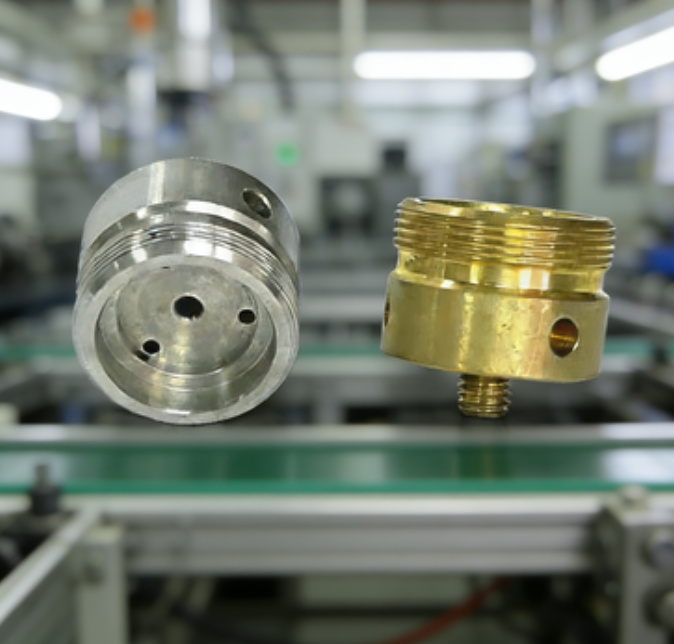 Investment casting uses a wax pattern to make exact metal parts. The process starts with a wax model that looks like the final product. Workers cover the wax with a ceramic material. They take out the wax, which leaves a hollow shell. Hot liquid metal goes into the shell and makes the finished part.
Investment casting uses a wax pattern to make exact metal parts. The process starts with a wax model that looks like the final product. Workers cover the wax with a ceramic material. They take out the wax, which leaves a hollow shell. Hot liquid metal goes into the shell and makes the finished part. -
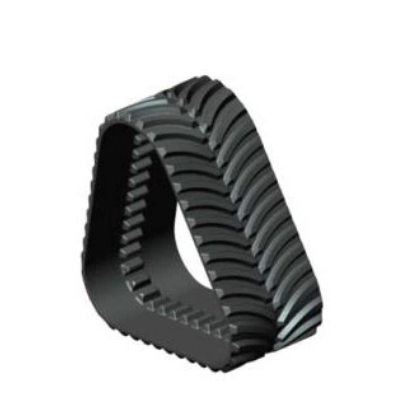 If you need new Rubber Tracks for a mini excavator, compact track loader, skid steer, or farm machine, one thing matters more than anything else: getting the measurements right. Measuring Rubber Tracks is simple when you know what to look for—width, pitch, guide type, and link count—and how to verify those numbers across different machines and wear levels. This guide gives you a quick, featured‑snippet‑style answer, an easy checklist, two data-driven tables, and practical troubleshooting so you can order with confidence and avoid downtime. You’ll also learn how those measurements tie into the undercarriage parts you should inspect or upgrade, including options across Agricultural Machinery Parts and related manufacturing categories you can source in one place.
If you need new Rubber Tracks for a mini excavator, compact track loader, skid steer, or farm machine, one thing matters more than anything else: getting the measurements right. Measuring Rubber Tracks is simple when you know what to look for—width, pitch, guide type, and link count—and how to verify those numbers across different machines and wear levels. This guide gives you a quick, featured‑snippet‑style answer, an easy checklist, two data-driven tables, and practical troubleshooting so you can order with confidence and avoid downtime. You’ll also learn how those measurements tie into the undercarriage parts you should inspect or upgrade, including options across Agricultural Machinery Parts and related manufacturing categories you can source in one place. -
 Keeping an engine healthy starts with one habit: checking the oil correctly. The good news is you can do it in minutes with tools you already have. This guide gives you a quick, featured-snippet-ready answer, a step-by-step checklist, two handy comparison tables, and a plain‑English explanation of what your dipstick is telling you. Then, we connect the task to durable, leak-free oil system components you can upgrade through modern manufacturing—especially Metal Casting and Metal CNC Machining—using a single product hub so you can explore options or request a quote when you’re ready.
Keeping an engine healthy starts with one habit: checking the oil correctly. The good news is you can do it in minutes with tools you already have. This guide gives you a quick, featured-snippet-ready answer, a step-by-step checklist, two handy comparison tables, and a plain‑English explanation of what your dipstick is telling you. Then, we connect the task to durable, leak-free oil system components you can upgrade through modern manufacturing—especially Metal Casting and Metal CNC Machining—using a single product hub so you can explore options or request a quote when you’re ready. -
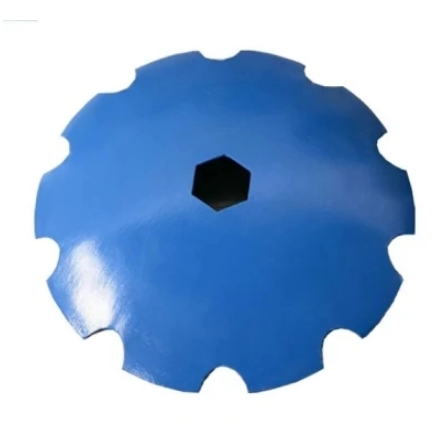 A sharp mower blade gives cleaner cuts, healthier grass, and faster mowing. If you’re standing in front of a grinder wondering what grit flap disc to use, here’s the quick, practical answer—and a complete guide that also connects what you learn to larger Disc Blade maintenance, including Harrow Disc Blade use in agriculture and other Agricultural Machinery Parts. You’ll find a quick answer, a comparison table for grits, simple steps, mistakes to avoid, and how to source or upgrade blades and related parts through a manufacturing partner.
A sharp mower blade gives cleaner cuts, healthier grass, and faster mowing. If you’re standing in front of a grinder wondering what grit flap disc to use, here’s the quick, practical answer—and a complete guide that also connects what you learn to larger Disc Blade maintenance, including Harrow Disc Blade use in agriculture and other Agricultural Machinery Parts. You’ll find a quick answer, a comparison table for grits, simple steps, mistakes to avoid, and how to source or upgrade blades and related parts through a manufacturing partner.












